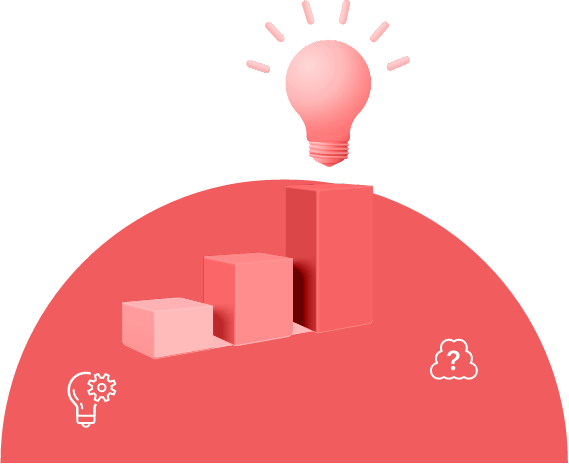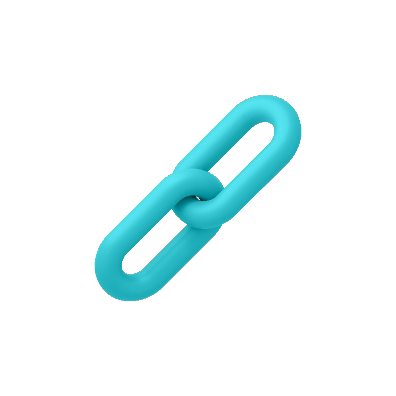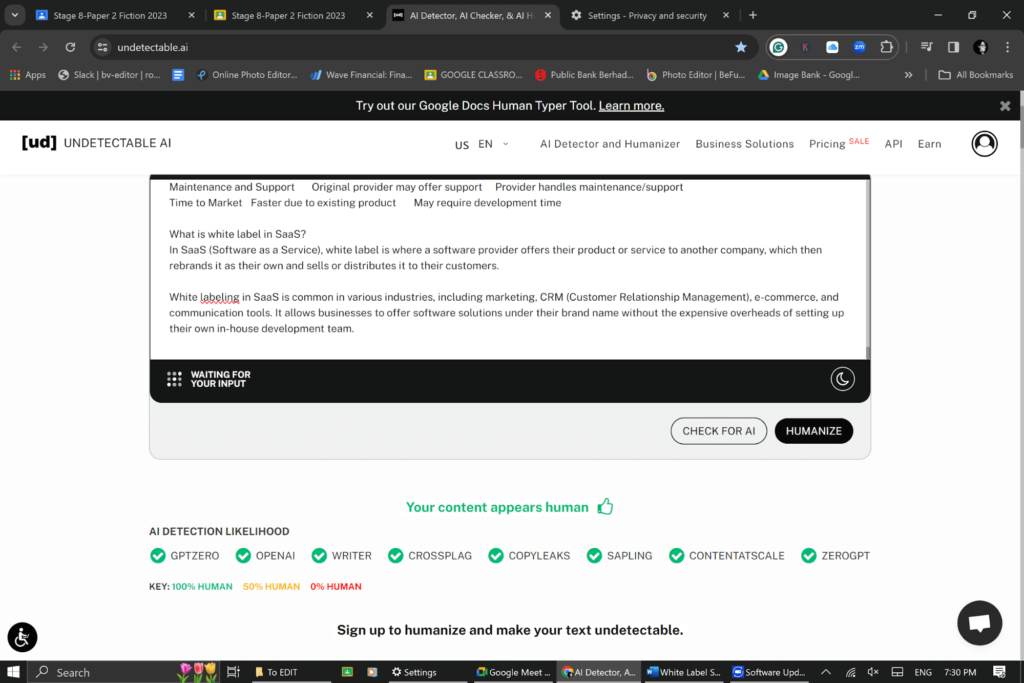
White Label
Software Development
White label software development involves creating software solutions that are re-brandable and can be resold by other companies under their own brand which allows businesses to offer tailored products without investing in extensive development resources.
White Label Software
Top White Label Software Development Company
White label software development companies are often rated based on several key factors. Third-party review platforms and industry associations often rate these companies by looking at
- Client reviews and testimonials: Especially positive reviews highlighting the quality of work, communication, and overall experience.
- Portfolio and case studies demonstrating expertise: A list of achievements and successful white label software solutions portfolios.
- Technical skills and use of cutting-edge technologies: Look for companies with a diverse skill set and experience in cutting-edge technologies.
- Industry recognition, awards, and partnerships: Especially industry awards, certifications, and partnerships with reputable organizations.
- Client satisfaction, support, and value for money: Timely support, regular updates, and addressing client concerns.
Top 5 White Label Software Development Company
These companies are recognized for their expertise, reliability, and ability to deliver high-quality white label software solutions to clients across various industries. Here are brief descriptions of the top 5 white label software development companies
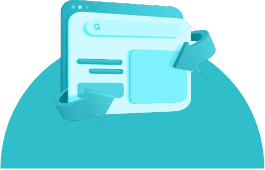
Highground
Known for their expertise in custom software development, Highground offers white label solutions across various industries, including healthcare, finance, and e-commerce. They focus on delivering scalable and innovative software products.
White Label Coders
Specializing in web and mobile app development, White Label Coders provides white label solutions tailored to clients’ specific needs. They emphasize quality, reliability, and cost-effectiveness in their services.
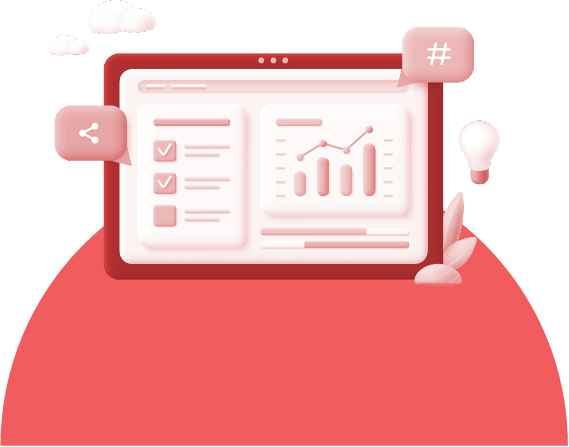

Simform
Simform is a leading provider of white label software development services, offering expertise in AI, cloud computing, IoT, and more. They work closely with clients to deliver cutting-edge solutions that drive business growth.
Radixweb
With a focus on digital transformation and technology consulting, Radixweb offers white label software development services that encompass web and mobile app development, software testing, and maintenance. They aim to empower businesses with innovative solutions.


ActiveCampaign
While primarily known for their marketing automation platform, ActiveCampaign also provides white label solutions for agencies and businesses. They offer customizable solutions and integrations to meet diverse business needs.
What is white-label Software Development?
White-label software development refers to the process of creating software solutions that are designed and developed by one company but can be rebranded and resold by another company under their own brand name.


Benefits of Using white-label Software Development?
White label software provides businesses with cost-effective and time-saving solutions that can be customized to meet specific needs.
By leveraging these ready-made solutions, companies can focus on their core activities, scale efficiently as they grow, and access expertise from experienced software providers.
This approach reduces overhead costs and risks associated with software development while ensuring quick delivery of high-quality products to customers.
How does White Label Software Development work?
White label software development involves several key steps

Step 1
Initial Consultation
The process starts with a consultation between the original software developer and the reselling company. Here, they discuss the requirements, customization options, branding elements, and pricing.

Step 2
Software Development
The original developer creates the software according to the agreed specifications. This involves designing the user interface, implementing functionality, integrating necessary APIs, and ensuring the software meets quality standards and security protocols.

Step 3
Customization
Then the original developer would customize certain aspects of the software, such as adding the reseller’s branding elements (logo, color scheme), configuring settings, or modifying features to align with their business requirements.

Step 4
Rebranding
Once the software is ready, the reselling company rebrands it with their own branding elements. This includes any other visual identifiers to create a seamless branded experience for end users.

Step 5
Deployment and Support
The white-labeled software is then deployed by the reselling company, either on their own servers or through cloud services. The original developer will continue to provide ongoing support, updates, and maintenance to ensure the software remains functional, secure, and up-to-date.

Step 6
Market Launch
With the software rebranded and deployed, the reselling company can market and sell the white-labeled product to their target audience.

How To Choose the White Label Software Development Partner
When selecting a white label software development partner, it’s crucial to consider several factors. Begin by assessing the partner’s experience and expertise in white label development, especially for industry-specific knowledge and proficiency in relevant technologies. Review their portfolio to see the quality of their work and their ability to meet diverse client needs.
Seek references from past clients to gauge satisfaction levels and their experience working with the partner. Besides technical skills, your potential partner should also offer customization options, and be committed to quality assurance and testing.
Communication and collaboration are also key, so ensure communication channels, project management approach, and transparency. They should also be flexible enough to adapt to growth, continue to offer support, and offer services that are value for money.
White-label Software Reseller vs White Label Software Marketplace
Below is a table to show the comparison between a white-label software reseller and a white-label software marketplace
| Aspect | White-Label Software Reseller | White Label Software Marketplace |
|---|---|---|
| Role | Resells white-label software under own brand | Platform for buying/selling white-label software |
| Ownership | Owns and operates the reselling business | Acts as a platform, not direct owner/operator |
| Customization | Can customize the software for specific clients | Offers pre-built white-label solutions |
| Branding | Applies own branding to white-label products | Provides a platform for multiple brands |
| Pricing | Sets pricing for resold software | May have standardized or variable pricing |
| Support and Maintenance | Provides support and maintenance to clients | May offer support, but often up to providers |
| Market Reach | Targets specific clients or industries | Provides access to a broader range of solutions |
| Relationship with Providers | Works closely with software providers | Facilitates transactions between buyers/sellers |
| Flexibility | Offers flexibility in customization and pricing | Provides options from multiple providers |
White label Software Development Pricing
White label software development pricing can vary significantly based on factors such as the complexity of the project, the level of customization required, the technology stack used, and the development team’s location and expertise.
It’s essential to discuss your specific requirements with the white label software development provider to get an accurate pricing estimate tailored to your project.
Typically, pricing models for white label software development include
- Fixed Price Model: Offers a set price for the entire project based on defined scope and requirements.
- Time and Material Model: Charges based on actual time and resources used, suitable for developing project requirements.
- Dedicated Team Model: Involves hiring a dedicated team on a monthly basis, ideal for long-term projects or ongoing support.
- Revenue Sharing Model: Some providers may opt for a percentage of revenue generated by the white label software.
Schedule A White Label Software Development Consultation With Highground.asia To Get More Information About Our White label
Software Development Services!
Ready to elevate your business? Schedule a White Label Software Development Consultation with Highground.asia today and discover tailor-made solutions for your brand!
